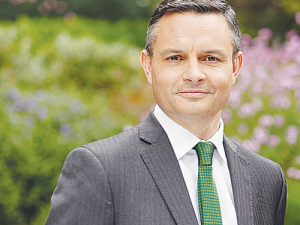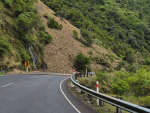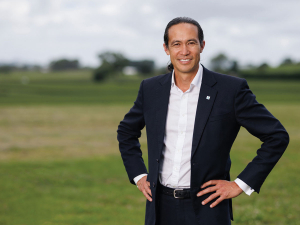“We will all be under the gun.”
And the Government’s sudden move on the oil and gas industries has the farming sector “a bit spooked” as to what sudden changes could be imposed on any sector, he told Dairy News.
“Everyone saw it as a kneejerk reaction.”
Farmers are definitely concerned what the costs might be if agriculture is brought under the ETS, how it will affect their businesses and what they might have to do.
“The biggest problem here is how can you have farms in a scheme when you can’t even properly measure what is coming off farms to start with?”
“Massive” investment in technology is needed before it is even doable.
He hopes the numbers are crunched and long, hard thinking is applied before any sudden decisions.
“We have had good discussions with [Climate Change Minister] James Shaw and he accepts some of the points we’ve made. But whether some other people in the Government are wedded to certain ideas… that could be the challenge there.”
Hoggard hopes common sense prevails. The Environment Commissioner in his recent report highlights the need to treat different gases differently and to view methane and nitrous oxide differently.
Methane does not need to be taken to zero because it is a recycling gas always present in the atmosphere, says Hoggard. More discussion and research is needed.
A different method from ETS may be required to achieve the goals.
One thing he agreed with in the Greens’ last policy was that gases should be split up and treated differently.
“We didn’t agree with how they were going to treat them but we did agree with splitting them apart.”
An ETS does not magically solve everything, especially if the products are still needed. “Everyone still has to be fed globally; we need to be producing food in the most efficient manner we can. Luckily enough New Zealand is at the forefront of doing that.
“But it’s a global issue and NZ doesn’t operate in a little bubble of its own. [We need] global solutions across some of these sectors and hopefully technology advances.”
Asked whether he hoped common sense would prevail with the new interim climate change committee, Hoggard says a problem is that the international settings and discussions haven’t been the right ones. NZ’s agriculture probably needs to pursue this more with its international counterparts.
Most global emissions come from electricity generation in about 10 countries.
“What really worries me is effectively they will be slapping a tax on an industry; we will just be paying a tax – not actually solving a problem.”
Any scheme needs to be focused at farm level.
Another issue is everyone focusing on the gross emission not net emission. Science does not recognise what is sequestered in the grass and in the soil.
“What is going around in a circle here? The problem isn’t the stuff going around in a circle, but what is coming out of the circle.”











